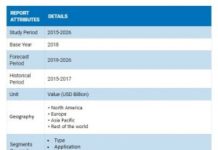January 15, 2021

Former UW student Trent Bronnenberg ice fishes at Twin Buttes Reservoir near Laramie. UW’s Biodiversity Institute plans a series of virtual discussions addressing the importance of hunting and fishing as drivers of conservation in Wyoming. (UW Photo)
The University of Wyoming’s Biodiversity Institute plans a series of virtual discussions that focus on the role of science in wildlife management and the importance of hunting and fishing as drivers of conservation in Wyoming.
“Biodiversity Chats: Stewarding Wyoming’s Landscapes through Hunting and Fishing” will take place via Zoom Wednesdays from noon-1 p.m. MST from Feb. 10 to March 10.
“COVID changed our plans for this event in March 2020,” says Mason Lee, the Biodiversity Institute’s senior project coordinator. “We are excited to be able to continue this event in a virtual format to connect the community to broad topics in hunting, fishing and biodiversity.”
Five webinar panels are scheduled as part of the “Biodiversity Chats: Stewarding Wyoming’s Landscapes through Hunting and Fishing” event.
“These discussions are free and open to the public, and are not limited to hunters or anglers,” Lee says. “People from all backgrounds, with any level of interest in hunting and fishing, are invited to attend.”
Topics covered as part of this event include sharing the stories of historically underrepresented groups in hunting and fishing narratives; the role of biodiversity research in hunting and fishing; overcoming access issues to hunting and fishing; and a presentation by award-winning author Keith McCafferty.
Registration is required for each webinar.
Here are more details on the lineup:
Wednesday, Feb. 10, noon-1 p.m.: “Hunting, Fishing and Biodiversity”
A fish researcher, ungulate researcher, wildlife manager and hunting guide will explore how biodiversity research benefits hunters and anglers, and vice versa.
To register for this talk, go to https://uwyo.zoom.us/webinar/register/1316080643778/WN_JKatklt6RWuliFUfRBX38Q.
Wednesday, Feb. 17, noon-1 p.m.: “Underrepresented Groups in Hunting and Fishing”
Historically, hunting and fishing narratives have revolved around white men. Panelists will share their stories of their involvement with hunting and fishing as a historically underrepresented group in these communities.
To register for this talk, go to https://uwyo.zoom.us/webinar/register/3016080650377/WN_jFHJGrlaTt6jh6BVgc_O4A.
Wednesday, Feb. 24, noon-1 p.m.: “Access to Hunting and Fishing”
Panelists will discuss a variety of access issues to hunting and fishing, including access for people with disabilities, laws governing access and Indigenous access to off-reservation hunting.
To register for this talk, go to https://uwyo.zoom.us/webinar/register/6216080652181/WN_zW3qJ6EdQ1iWi2bxfbL_Ig.
Wednesday, March 3, noon-1 p.m.: “Stories and Art to Honor Hunting and Fishing”
An essayist and two visual artists will explore the various ways that people honor their hunting and angling experiences, and especially how they use their art to share that experience with others.
To register for this talk, go to https://uwyo.zoom.us/webinar/register/1216080653890/WN_vvS2xT_jTkKp7hd_k-eGVQ.
Wednesday, March 10, noon-1 p.m.: “Fact to Fiction: A Conversation with Author Keith McCafferty”
Award-winning author and avid fly fisherman Keith McCafferty, author of Viking/Penguin’s Sean Stranahan mystery series, will share his story of going from an editor for Field & Stream to an award-winning novelist.
To register for this talk, go to https://uwyo.zoom.us/webinar/register/5816080655462/WN_qj1x36NQSKqPzJ8TfuqQSQ.
For more information on this series, email biodiversity@uwyo.edu.
The mission of the Biodiversity Institute is to foster the understanding, appreciation and conservation of biological diversity through innovative research, education and outreach, and by engaging a broad audience in the scientific process. Learn more at www.wyomingbiodiversity.org.
Credit: Source link






























